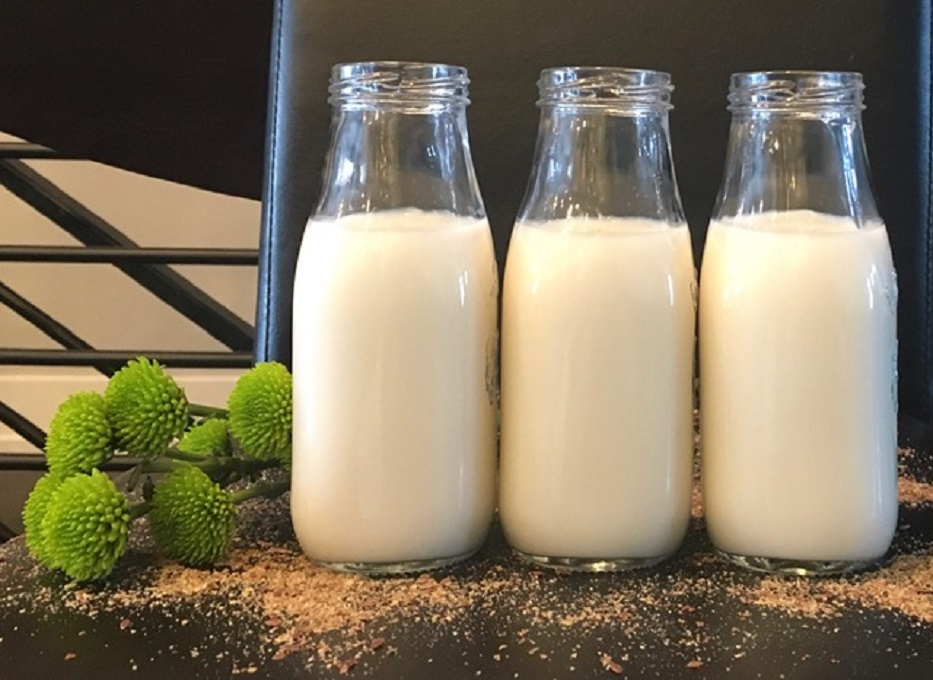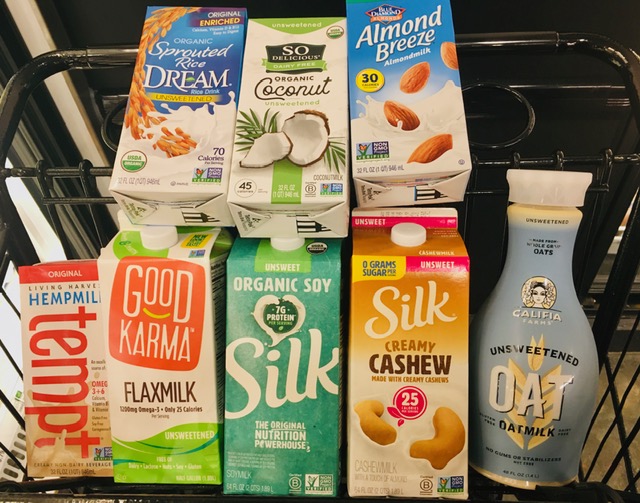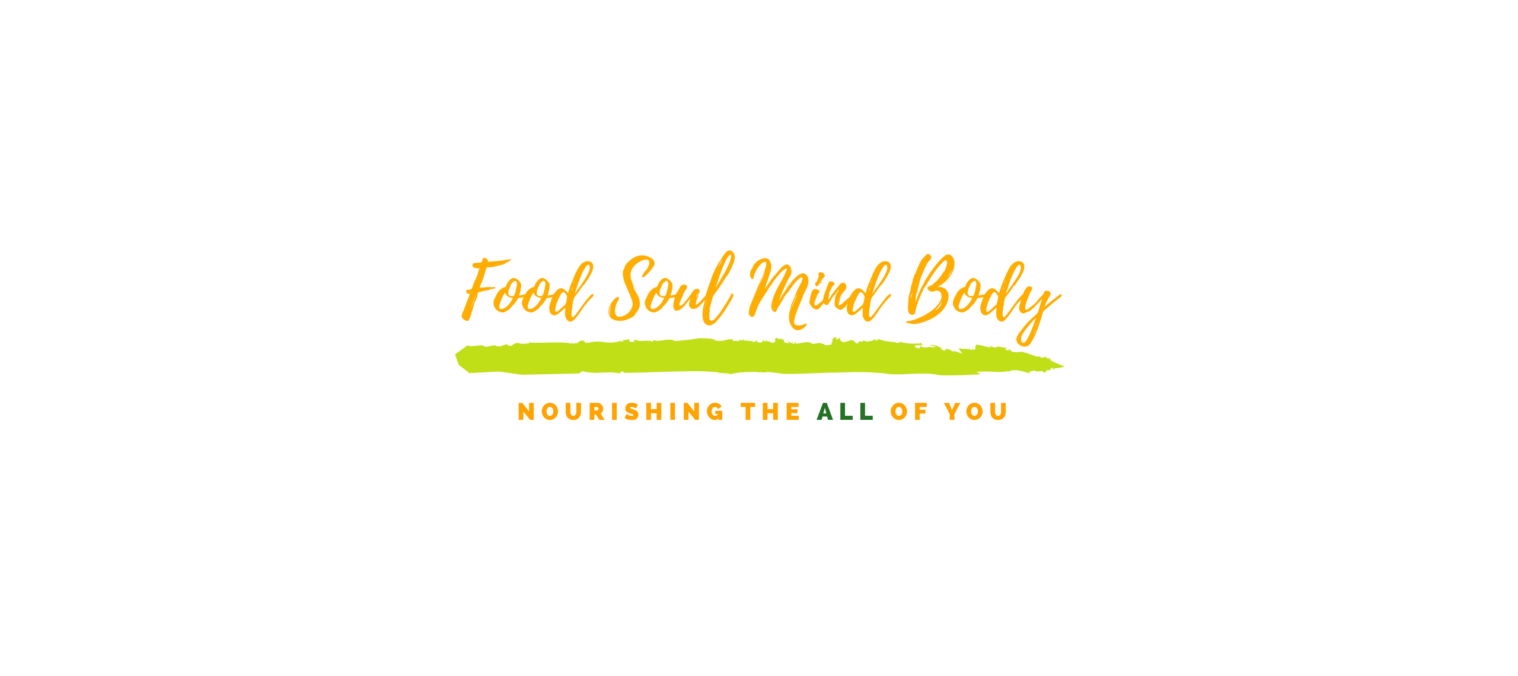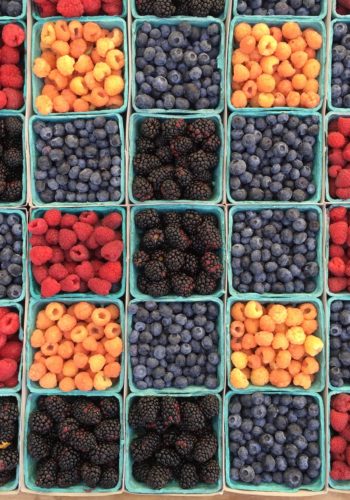
Plant Milk – Which is Best?
There’s a section of the supermarket that is exploding, and I’m not talking about the cold cereal aisle. Consumers are now drowning in choices of plant-based milk, which is making it more and more difficult to determine which one is the right one, the best one, “the one for me”.
Truth is, there’s likely more than one for you – or me for that matter. It all depends on why you are choosing plant milk, your nutritional goals, and how you intend to consume the milk.
Why are you choosing plant milk?
- Perhaps you’re one of the growing number of consumers concerned regarding ethics and sustainability as it relates to the dairy industry
- Maybe you believe plant milk is healthier than cow’s milk
- If you have a milk allergy or are lactose intolerant, plant milks may provide you a safe and tolerable alternative to cow’s milk
- Maybe you’re looking to add more variety to your diet, or maybe you just like the taste!
Is plant milk good for you?
The simple answer is, “Yes, but…”
- The nutrient profile will vary not only by type of plant milk but also by brand. Typically, the calories, protein, fat, fiber, and sodium content are consistent across brands; however, the vitamin and mineral content can vary widely depending upon the brand. Additionally, most brands offer several versions of the same type of milk. There’s often an “original” or plain version, which may or may not contain added sugar, a low-fat version, both a sweetened and an unsweetened vanilla version, and sometimes even a chocolate version.
- Regardless of brand, soy milk is a good source of protein. Even better, soy provides a complete protein, meaning it contains all nine of the essential amino acids, the building blocks for all proteins. This is a particular benefit for vegans and vegetarians, given few plant-based foods are sources of complete protein
- Except for coconut milk, plant milks contain little to no saturated fat. Hemp milk, while high in fat, is actually a contributor of “good” fat to the diet, providing Omega-3 and Omega-6 fatty acids, both of which are associated with a reduced risk of heart disease
- Vitamins and minerals are often added to plant milks to boost their nutritional value.
- Many plant milks are fortified with Vitamin B12, again a particular benefit for vegans, given the only natural sources of B12 are animal-based
- Riboflavin, important in metabolism and maintaining the body’s energy supply, typically comes from animal sources, so plant milks fortified with riboflavin, such as plant milk, are of particular benefit to those following a plant-based diet
- Plant milk is usually fortified with calcium and typically provides around 30% of the reference daily intake (RDI) for calcium. It’s worth noting that calcium is not absorbed as well from plant milk as from cow’s milk, so if you’re substituting plant milk for cow’s milk, you may need to consider including additional sources of calcium in your diet; however, plant milks, like cow’s milk, are often fortified with Vitamin D, which does assist with calcium absorption
- Soy milk stands out as the biggest contributor of potassium, a mineral associated with lowering blood pressure and reducing risk of stroke
- Of the plant milks, cashew and coconut contribute the highest levels zinc, which helps the immune system fight off invading bacteria and viruses. Additionally, zinc assists the body in wound healing
- Hemp milk is a good source of iron, which plays an important role in the transport of oxygen throughout our bodies
- None of the plant milks are good sources of fiber; although, soy milk does at least offer 2 grams of fiber per 8-ounce serving

*The hemp milk shown above contains 6 grams added sugar. I do NOT recommend buying THIS version of tempt hemp milk. tempt brand DOES have an unsweetened version of hemp milk; however, the supermarket had run out of it. I guess that’s a good thing though, as it means the unsweetened version is what people are choosing!
*The coconut milk described in this post, is the coconut beverage sold in a carton, NOT the coconut milk sold in a can.
NUTRIENT PROFILES OF PLANT MILK
| Milk Type | Calories | Protein | Fat/Sat Fat | Sodium | Potassium | Calcium | Vit D | Vit B12 | Zinc | Vit A | Riboflavin | Fiber | Iron |
| Almond | 30 | 1 g | 2.5/0 g | 160 mg | 5% | 45% | 25% | — | 0% | 10% | 2% | <1 g | 4% |
| Cashew | 25 | <1 g | 2/0 g | 160 mg | 1% | 45% | 25% | 50% | 8% | 10% | 30% | 0 g | 2% |
| Coconut | 45 | 0 g | 4/3.5 gg | 10 g | 0% | 10% | 10% | 120% | 8% | 15% | — | 1 g | 0% |
| Flax | 25 | 0 g | 2.5/0 g | 80 mg | 0% | 30% | 25% | 25% | — | 10% | — | 0 g | 2% |
| Hemp | 80 | 2 g | 8/0.5 g | 125 mg | — | 30% | 25% | 25% | 4% | 10% | 25% | 0 g | 10% |
| Oat | 100 | 2 g | 7/1 g | 100mg | 6% | 20% | 0% | — | — | — | — | 1 g | 0% |
| Rice | 70 | <1 g | 2.5/0 g | 110 mg | 0% | 20% | 25% | 50% | — | 10% | — | 0 g | 4% |
| Soy | 80 | 7 g | 4/0.5 g | 70 mg | 10% | 30% | 25% | 50% | 6% | 10% | 30% | 2 g | 6% |
*With the exception of hemp milk, the nutrient profiles in this table are representative of the plant milks shown in the picture above.
You want it to look good, taste good, and feel good, right?
Consumers expect plant milks to look good, taste good, and have a good mouthfeel, thus manufacturers add stabilizers and emulsifiers to minimize the sedimentation and particle separation characteristic of the ingredients in plant milk. The good news is, apart from carrageenan, these additives have not demonstrated any serious side effects. All of them are gluten-free; however, when consumed in large quantities, they can cause GI side effects such as gas, bloating, and loose stools. While note serious for most, this can be a problem for people with digestive sensitivities. So, if you are one of these individuals, you will want to monitor and likely limit your intake.
- The one to avoid:
- Carrageenan – Made from red seaweed. Evidence from animal studies has shown the risk of serious health issues like inflammation and cancer. More studies are needed; however, why consume it when there are alternatives?
- And, the other ones:
- Acacia gum (Gum Arabic) – Produced from the sap of the acacia tree. Acacia gum can be classified as a prebiotic, which means it can selectively stimulate growth of “good” bacteria in the gut
- Gellan gum – Made by fermenting sugar with certain kinds of bacteria
- Guar gum – Derived from seeds of the guar plant. Guar gum is high in soluble fiber, so it may help you stay full longer
- Lecithin – Soy and egg are two of the most common sources of lecithin. While production of lecithin removes nearly all of the protein (proteins being the allergen in soy and eggs) from its source, lecithin has little potential to induce an allergic reaction. Nevertheless, the FDA does require a warning on the label of foods containing soy or egg lecithin. If you have a severe soy or egg allergy, talk to your physician before consuming foods containing this additive
- Locust bean gum (Carob bean gum) – Made from the seeds of the carob tree. Locust bean gum is durable and soluble in hot water. It is also high in fiber
- Tapioca Starch – Made from the cassava plant. Tapioca starch is allergen friendly and has no real nutritional value
- Tara gum –Derived from the legumes of a Peruvian shrub. Tara gum is one of the newest food additives; however, to date, no toxic side effects have been reported
- Xanthum gum – Made from fermenting sugar with certain kinds of bacteria
- Watch out! There may be sugar hiding
there!
- Flavored and even many of the plain versions of plant milks contain 6 to 9 grams or even greater amounts of added sugars, including cane sugar, brown rice syrup, and other forms of sugar. Select those with the term “unsweetened” on the product label and before purchasing, be sure to look for “Added Sugars” on the nutrition label as well as sugar in the ingredient list (See post “Cut it Out, Sugar!” to learn more about the many names for sugar) and avoid those versions or brands. If this is your first taste of plant milk, the unsweetened versions may take some getting used to.
Can you cook and bake with plant milk?
Yes! Here are some guidelines to consider before you begin. Follow these, and then experiment on your own!
- Sweet and Savory Dishes
- Some plant milks, including cashew, flax, and soy milk work well in both sweet and savory dishes
- Almond, coconut, oat, and rice milk may be a bit too sweet for some savory dishes, but their natural sweetness is a nice complement to any sweet dish
- Hemp milk, due to its strong “earthy” flavor, is best reserved for savory dishes
- Baked Goods
- Curdling, which is dependent upon protein, enhances the crumb quality of cakes, muffins, and other baked goods, so if you’re planning on baking, your best choice may be soy milk, the plant milk with the highest protein content That isn’t to say you can’t still produce a quality baked product with milks other than soy, the texture may just be a bit inferior. Hemp and oat milks, with slightly higher protein content than the other milks, also will perform well in baked goods, but because of its strong flavor, you may want to reserve hemp milk for your savory baked dishes
- Soups and Sauces
- All of the plant milks will perform in this category. Choice in this category is really dependent upon the desired flavor; however, if you’re aiming for creamy thickness, you may want to use soy, cashew, or hemp milk. Rice milk is the thinnest of all the plant milks, so it’s the least likely contender in this category
- Beverages, Smoothies, and Cereal
- All of the plant milks work well when added to cold beverages, blended into smoothies, and poured over cereal. Unfortunately, when added to coffee, plant milk tends to curdle – ick! Oat milk, however, is the least likely to curdle when added to coffee. No doubt, if you frequent coffee shops, you’ve likely noticed oat milk is the new non-dairy darling of baristas. Regardless of what plant milk you’re using in your coffee, take a tip from the baristas and heat the milk before combining it with the hot coffee, or try first pouring the plant milk into the cup and then slowly adding the coffee. You’ll be less likely to see those unappetizing curdles 😊
The “best” plant milk for you is…
Hopefully, after reading this post, it’s clear that the “best” plant milk for you depends on your nutritional goals as well as how you intend to consume the milk. If you are replacing all dairy milk with plant milk, protein, calcium, vitamin D, and riboflavin should all be considerations. If you select a plant milk that is low in one or more of these nutrients, you’ll need to include other sources of these nutrients in your diet. This is especially important if you’re replacing dairy milk with plant milk in your child’s diet. Avoid plant milks that contain carrageenan and, regardless of the type or brand of plant milk you select, opt for the unsweetened version. All plant milks have their place in baking and cooking, but you’ll be more pleased with your end product if you keep in mind which milks are best for savory dishes and which are best for sweet dishes. Also, remember that plant milks higher protein content will provide you a better baked product. Finally, if you like milk in your coffee, consider giving oat milk a try.
Now, go enjoy your “best”!






2 Comments
kevin
Hi Nicole,
Thanks again for your article. I’m lactose intolerant so plant based milks are a very suitable alternative for me. Based upon my need to also have proteins to support my work out needs it think Soy milk is my choice. However,
can you share with me information on Soy and increased estrogen levels in men?
Thanks again,
Kevin
nainsworth44
Hi Kevin,
Nice to hear from you again. Soy contains a form of plant estrogen, phytoestrogen, which has similar but much weaker effects than estrogen. It was a belief for years that consuming soy was a concern for men; however, recent research has shown that soy can be safely consumed in normal quantities by men. So, unless you’re drinking gallons of soy milk or consuming enormous amounts of tofu, edamame, and other soy products on a regular basis, you should be just fine. Organic soy products, such as organic soy milk, are packed with nutrients your body needs and can be part of a healthy, well-balanced diet.